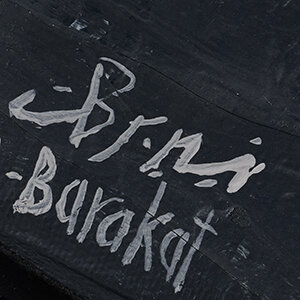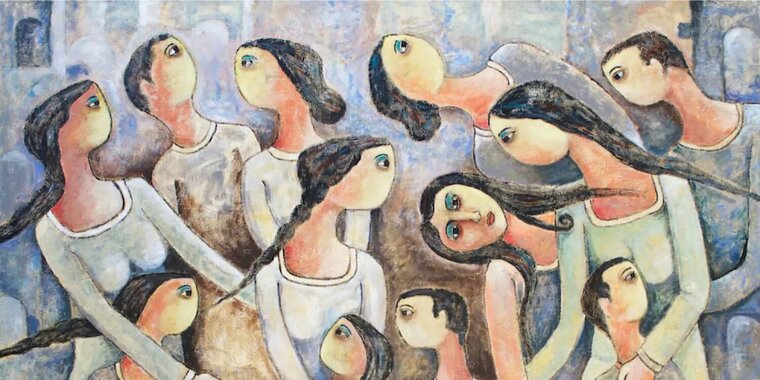


Last updated on Sat 23 April, 2016


RENDEZVOUS BY NABIL ANANI, SLIMAN MANSOUR AND TAYSEER BARAKAT
23 April – 21 May 2016
Zawyeh Gallery
The exhibition Rendezvous marks a coming together of the three artists Sliman Mansour, Nabil Anani and Tayseer Barakat, who for many years have worked in close dialogue with each other. There is an important sense of comradeship and partnership between these artists that arises from years of shared daily experiences and shared lives. Such relationships and dialogues between artists, the daily habitude and anecdotes they share, provides us with a unique window into the world of art making.
The paintings on show in the exhibition mark the continued journey in each of artist’s own particular oeuvre of work and reflecting their own individual pre-occupations in which they explore themes from the prism of today and reflect upon the experience of the contemporary condition. Perhaps what they all share in common is a sense of melancholia and foreboding, whether it is the isolated figures in Barakat’s work, the empty vacated landscapes of Mansour, or the gestures and poses in Anani’s work- a strong sense of loss pervades all the works.
Many of Nabil Anani’s paintings are populated with figures and communities, however they often seem to be haunted by a sadness, that appears in the gestures and poses, it is though there is something incomplete, awkward or not as it should be. The village from example in the paintings ‘Motifs’, appears haunted as though only a few inhabitants remain, as the village has simple become a motif in our lives as many of us have very little connection with village life today. The ‘End of Innocence’ seemingly gestures to the dawn of a new time, however while this young group undulate with movements like the wave of a sea, we are drawn to the fact that all the figures are silenced as thought part of their agency has been erased from them with the exception of the fragment of one single female figure.
Tayseer Barakat’s work appear as palimpsest, as though carved into layers of stone with the encrusted contrasting surfaces. It is as though we have secretly discovered them in an ancient cave, where people have recorded new mythologies and traces of our time. Barakat has a long trajectory in his work of a relationship to ancient civilizations and traditions of representation drawn from this region, and this continues to echo throughout is work. It is though he creates an image to be discovered in the future of our contemporary time, such as in the works ‘Distant Love’, ‘Freedom’ and ‘The Silent Crowd’.
In the works in this exhibition Sliman Mansour revisits a recurring theme in his work the landscape and the grooves of olive trees. His more recent exploration of this motif one finds that the paintings have a sense of melancholy to them, as the landscapes are empty, unpopulated and only inhabited by carefully distributed rows of lone olive trees which have born witness to years of occupation of the land. There are no large vistas or horizons in the work, but rather intimate views of fragments of the landscape, as though reflecting on the increasingly shrinking of the landscape of Palestine and the homeland. Similarly his olive pickers appear as ghost like figures, all colours washed away becoming shadows of their former selves.
Mansour’s detailed affectionate rendering of the olive tree, seems to offer a prism of hope- a gesture of continued steadfastness which reveals itself through the various nuances of the paintings of these three artists whether it is a gesture of a dream of freedom, an individual olive tree or the rhythms of stoic figures.
Join us in our endless discovery of modern and contemporary Arab art